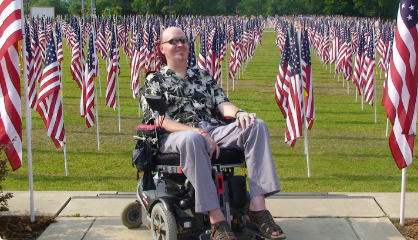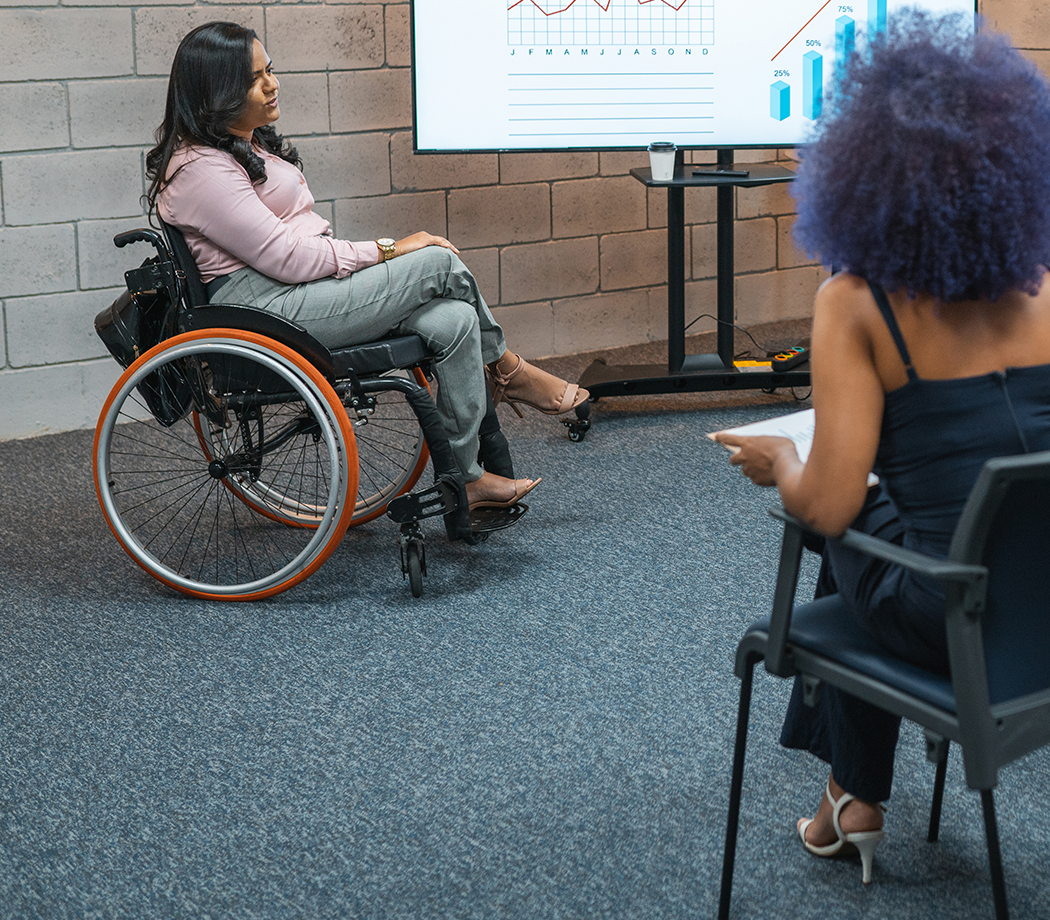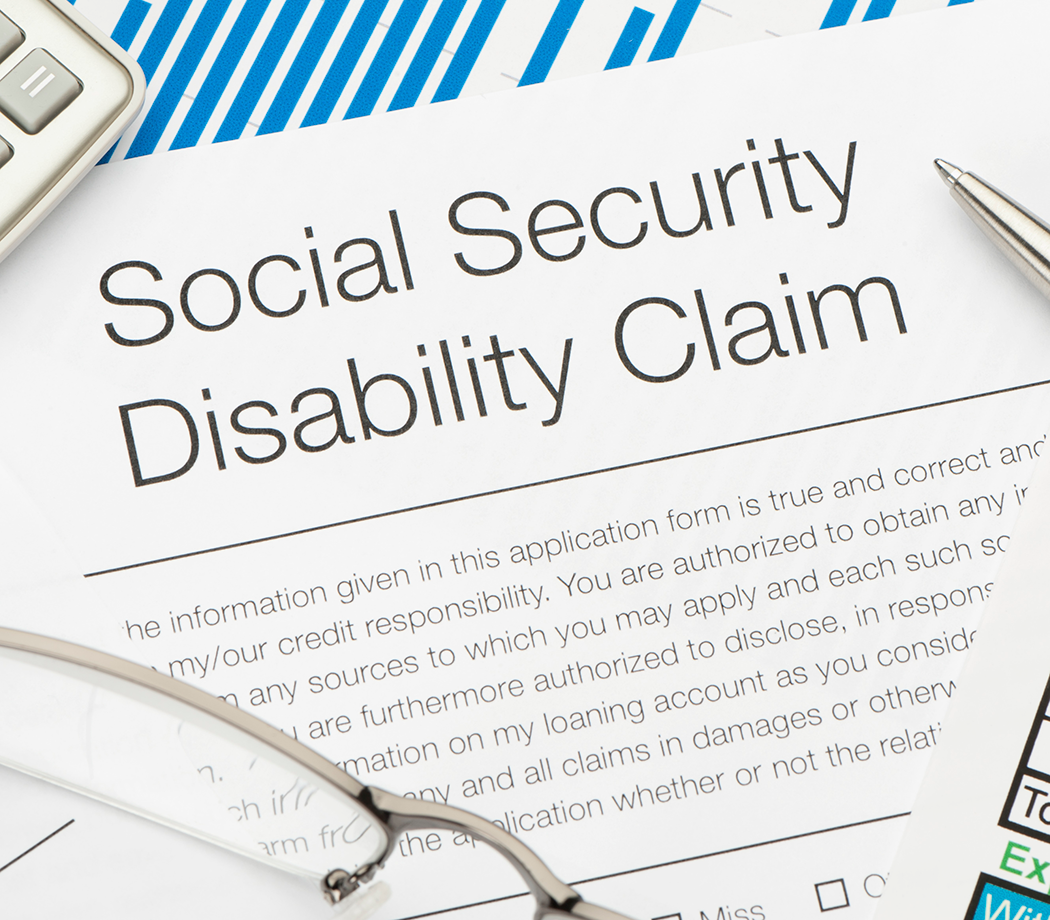Social Security Benefits
Overview of Social Security programs
The two main Social Security programs that support people living with disabilities are Social Security Disability Insurance (SSDI) and Supplemental Security Income (SSI).
You should apply for both SSDI and SSI as soon as you become disabled. You may be eligible for one and not the other.
It may take months or over a year to receive a decision, depending on how much time it takes to get your medical records. How soon your benefits start depends on a combination of your date of disability, date of application for disability, and type of benefits you qualify for.
Social Security Disability Insurance (SSDI)
Social Security Disability Insurance is based on your inability to work. You are considered to be disabled under Social Security rules if you cannot do work that you did before and it is decided that you cannot adjust to other work because of your medical condition(s).
A high percentage of initial SSDI claims are denied. There are three levels of appeals process, though. To win a claim at any level, an applicant must provide medical evidence of a disabling condition. The best source of this evidence is the applicant’s doctor, not the applicant.
In addition to meeting the definition of disability, you must have worked long enough, and recently enough, under Social Security to qualify for disability benefits. A person must have worked at least 5 of the 10 years immediately before the disability and paid FICA taxes. The disability or impairments must be expected to last for at least 12 months.
SSDI benefits are available to workers who have “medically determinable” impairments that prevent them from staying on the job or from performing any “substantial gainful activity.” It is the safety net for workers who cannot be helped by adjustments and adaptations called “reasonable accommodations” in the Americans with Disabilities Act (ADA).
Additionally, an individual living with a disability under the age of 65 must receive disability benefits from Social Security for 24 months before being eligible for Medicare.
Supplemental Security Income (SSI)
Supplemental Security Income is a program that provides monthly payments to people who have limited income and resources.
SSI is for people who are 65 or older, as well as for those of any age, including children, who are blind or who have disabilities.
To get SSI, you must:
- Be age 65 or older
- Be totally or partially blind; or
- Have a medical condition/disability that keeps you from working and is expected to last at least one year or result in death
SSI benefits are not based on your work history or that of another family member. In most states SSI recipients may also get Medicaid coverage for hospital stays, doctor’s bills, medications, and other health care costs.
SSI recipients may also be eligible for food stamps in every state except California because the state adds money to the federal SSI payment instead.
When determining your eligibility, your income is calculated and based on the money you earn, your Social Security benefits, your pensions and the value of items you get from someone else, such as food and shelter. Where you live affects the amount of income as different states have different rules.
You may be able to get SSI if your resources (the things you own) are worth no more than $2,000 for a person or $3,000 for a married couple living together. Not everything you own is counted. For example, SSI does not count a house you own if you live in it, and usually don’t count your car.
However, cash, bank accounts, stocks and bonds are taken into consideration.
To receive SSI, you also must apply for any other government benefits for which you may be eligible. Additionally, if you receive SSI, you usually can get benefits from the Supplemental Nutrition Assistance Program (SNAP) and Medicaid, too. Medicaid helps pay doctor and hospital bills, and SNAP helps pay for food.
The SSI Program is funded by General Revenue. It is not funded through Social Security taxes withheld under the Federal Insurance Contributions Act (FICA).
Visit the Social Security Administration website and locate the Social Security office nearest you for additional assistance.
Instead of going to the Social Security office, you can set up a telephone interview to start the process by calling 1-800-772-1213.
Individuals with paralysis transferring to rehabilitation centers in other states can also set up a telephone interview in their home state using the number listed above.
The Appeals Process
Social Security does not always make it easy to get or keep benefits. If the agency decides that you are not eligible or are no longer eligible for benefits, or that the amount of your payments should be changed, you will receive a letter explaining the decision.
If you don’t agree, you can ask them to look at your case again. If you wish to appeal, you must make your request in writing within 60 days of the date you receive the letter. There are four levels of appeal.
A reconsideration is a complete review of your claim by someone who didn’t take part in the original decision. This person will look at all the evidence submitted when the original decision was made, plus any new evidence.
If you disagree with the reconsideration, you may ask for a hearing. The hearing will be conducted by an administrative law judge who had no part in either the first decision or the reconsideration of your case. You and your representative, if you have one, may come to the hearing and explain your case. You may review anything in your file and provide new information.
If you disagree with the hearing decision, you may ask for a review by the Social Security’s Appeals Council. The Appeals Council looks at all requests for review, but it may deny a request if it believes the hearing decision was correct.
If the Appeals Council decides to review your case, it will either decide your case itself or return it to an administrative law judge for further review.
If you disagree with the Appeals Council’s decision or if the Appeals Council decides not to review your case, your final option is to file a lawsuit in a federal district court.
Since the rules are complicated, many applicants hire lawyers who specialize in Social Security law. The National Organization of Social Security Claimants’ Representatives may be able to suggest local referrals.
For any questions about SSI, SSDI or other disability benefits programs, contact the nearest Social Security office.
Resources
If you are looking for more information on Social Security or have a specific question, our Information Specialists are available business weekdays, Monday through Friday, toll-free at 800-539-7309 from 9am to 8pm ET.
Additionally, the Reeve Foundation maintains fact sheets on Social Security programs with additional resources from trusted Reeve Foundation sources. Check out our repository of fact sheets on hundreds of topics ranging from state resources to secondary complications of paralysis.








